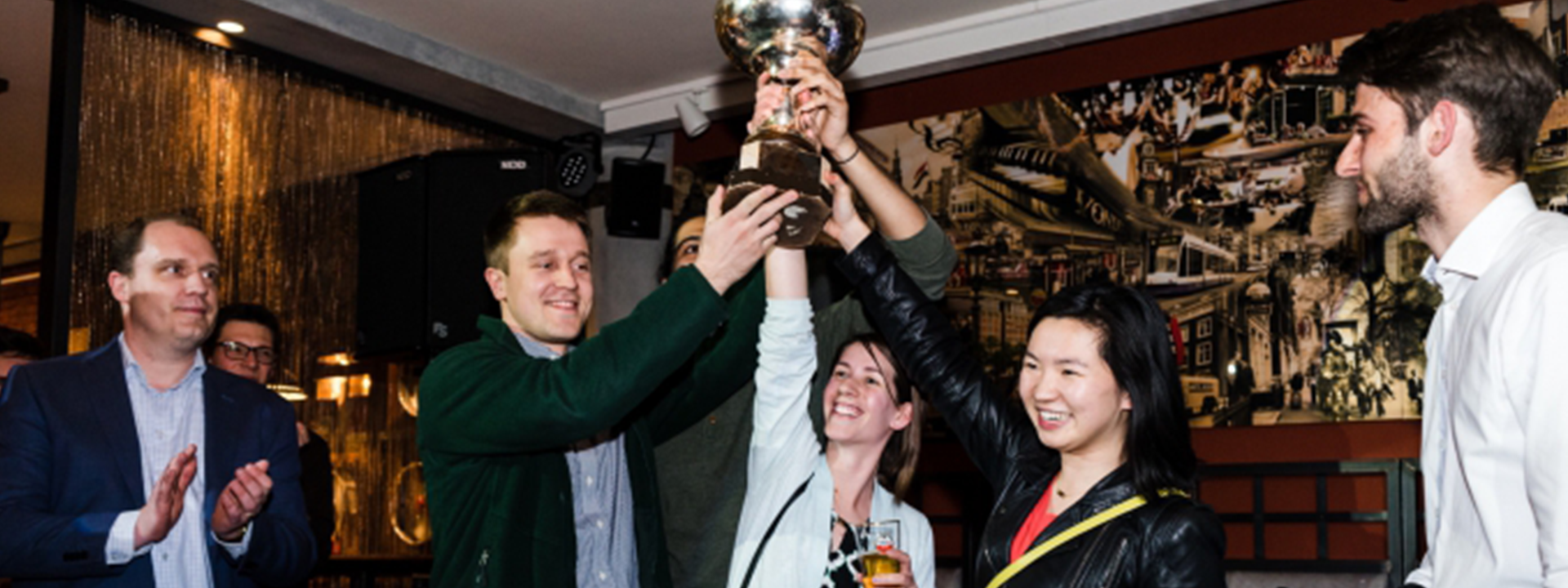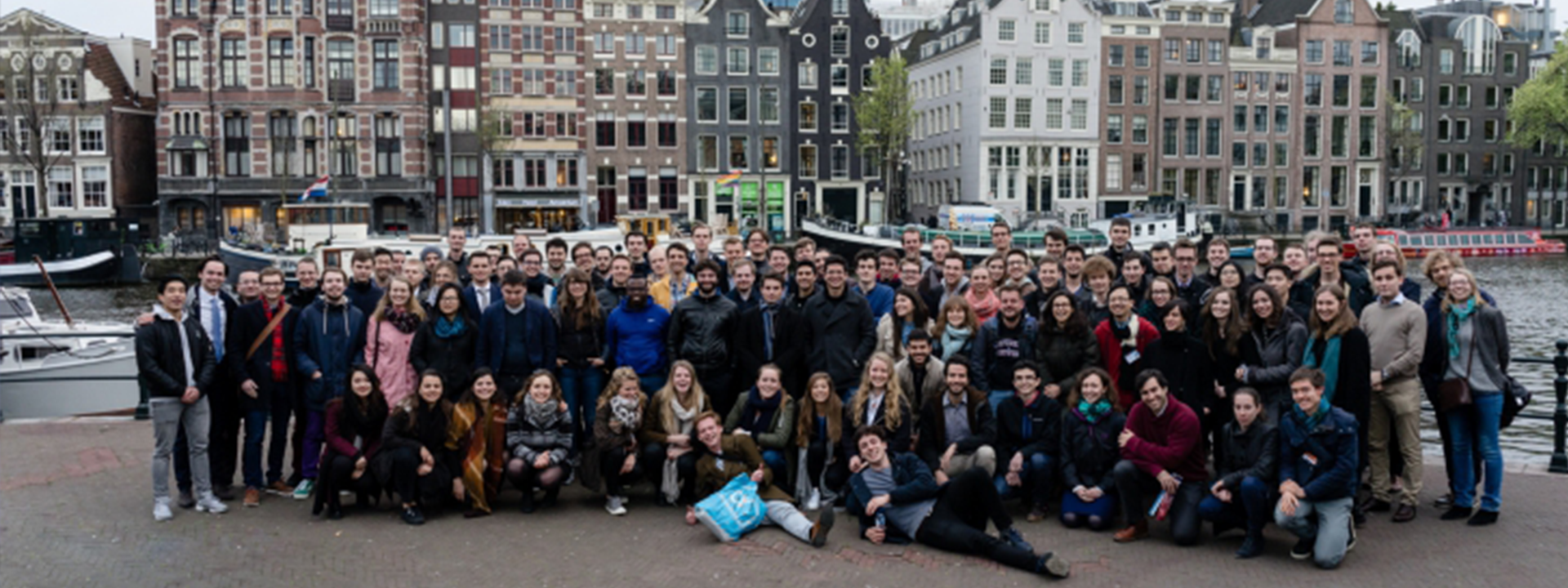


General
Every year, the University of Amsterdam is hosting the Econometric Game, one of the most prestigious projects organized by the study association for Actuarial Science, Econometrics & Operational Research (VSAE) of the University of Amsterdam. The participating universities are expected to send delegations of four students majoring in econometrics or relevant studies with a maximum of two PhD students. The teams will be given a case study, which they will have to resolve in two days. After these two days the ten teams with the best solutions will continue to day three. On the third day the finalists have to solve a second case while the other teams can go sightseeing in Amsterdam. After the teams have explored the city, all the participants will listen to each others presentations about their findings. The solutions will be reviewed by a jury of qualified and independent professors and they will announce the winner of the Game.
The Econometric Game 2017 took place on the 5th, 6th and 7th of April 2017 in Amsterdam.
Case
Casemakers:
Case A (Wednesday – Thursday): Stijn Ruiter (NSCR & Universiteit Utrecht) & Ben Vollaard (Tilburg University)
2017_Case_1_Thursday
Case B (Friday): Pierre Koning (Universiteit Leiden, Free University Amsterdam) & Ben Vollaard (Tilburg University)
Brief introduction:
Crime has dropped substantially in Europe and the US since the 1990s. The study of what caused the crime drop has resulted in a greater attention to victim precaution.
Government regulation resulted in greater levels of victim precaution over the last decades (including mandated anti-theft devices in cars in many parts of the world and changes in Building Codes in some places), but surveys suggest that households (and firms) also took many additional crime prevention measures of their own accord.
This response to the crime risk may have limited the number of opportunities available to potential offenders,which may have contributed to a lower crime rate.
Today’s challenge is to study the use of one particular crime prevention device: (roll-down) shutters in front of windows and doors.
General prediction-question: By which year will each municipality in the Netherlands be saturated with shutters?
Finalists
- University of Copenhagen (TOP THREE)
- Tilburg University (TOP THREE)
- Warsaw School of Economics
- University of Illinois at Urbana-Champaign
- Lund University
- Harvard (WINNER)
- University Carlos III of Madrid
- New Economic School
- McGill University
- Erasmus University
Findings
Harvard University won the Econometric Game 2017 with their report on “The Impact of Crime Precaution Technology Adoption on Crime”.
As science is and should be open to allow people to learn from each others work, the papers of the top 3 universities can be found here.